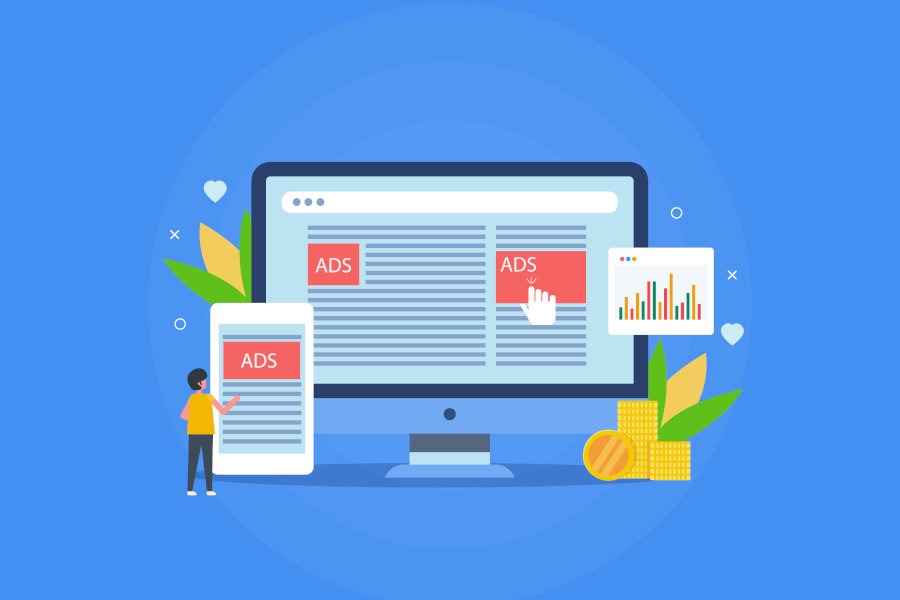What's the Difference? Leads From Google Ads Versus Facebook Ads


In a recent conversation with a contractor joining our marketing services, we talked at length about the difference in marketing today compared to 5 or 10 years ago. It's a common point of conversation – usually noted with some yearning for the "good ol' days" where you could drop some cash in the Yellow Pages and call that a marketing plan.
With the internet now in everyone's pocket, the number of potential paths to capture new leads are as countless as they are interwoven. With contractors and small businesses experimenting with a variety of options, we get lots of questions about the different types and quality of leads from various forms of advertising.
One of the most common question we get asked is about Google Ads versus Facebook Ads... "What's the difference?" Let's talk about the different marketplaces, and what the difference is between Google and Facebook adverting as well as the prospective leads delivered from both.
Google Ads vs. Facebook Ads – Differences in Format
Both Facebook and Google basically have the same style formats. Text, image and text, video ads, retargetting ads; generally speaking both marketplaces have the about same product offerings. So not too much difference in the actual media format.
Google Ads vs. Facebook Ads – Differences in Advertising Reach
Facebook had about 241 million active users in US and Canada alone in first quarter 2018
When you're paying for ads on Facebook and Google, you're getting access to a huge network of users. With Facebook, that means access Facebook, Instagram, Messenger, and "Audience Network" eyeballs. With Google, that means the Google search and display network is at your fingertips.
While you could certainly run ads on the separate platforms, Facebook and Google are inherently separate advertising networks.
Google Ads vs. Facebook Ads – Differences in Your Audience
Less about which network your audience falls in, the needs of your audience are very different – especially when it comes to advertising for contractors and home service providers.
Google Search Network
Here, you have the opportunity to capture a user with a very specific INTENT. Because search based paid marketing is based on keyphrases, you can present your ad to users who are completing very specific search queries that align with your business offerings.
For service based industries, that intent is usually to resolve an immediate problem. Just about no one is completing a search for "burst pipe repair" and then waiting to get quotes from multiple plumbers while their material possessions float away.
For "visual" industries (painters, remodelers, etc.) – the intent is different. There likely isn't a "kitchen remodeling emergency" happening any time soon. Most painters and remodeler will be getting visits from a mix of clients, from those in the very early in the planning stage to those ready to pull the trigger and select a vendor.
Facebook Network
Facebook's strength rely less on search volume and more about who their users really are. Wherein Google knows what you're searching right now, Facebook knows what you "like" today and what you "liked" yesterday. On a deeper level, they understand your interests based on the information you provided when you built your account and all of the activity you've ever completed while logged in.
Google Ads vs. Facebook Ads - The Big Difference Between the Two Advertising Networks Is:
For Google – You'll know much more about a user's INTENT. Advertising to users with specific INTENT means you can present yourself as a solution to their problems. You may not know as much about the individual user completing the search, but you know their needs and can have strong insight as to what they need.
For Facebook – In the end, you'll know much more about the USER and who they are. Advertising when you can identify which USER could be a good prospective lead for your services means you can get in front of the right person based on their demographics and activity patterns. You may not know about their exact intents and needs at the moment, but you'll know if they are a good fit as a prospective buyer.

About Chris Lonergan
Chris Lonergan has over 12 years of contractor marketing experience with Footbridge Media. With a background in web design, print design, content creation, and online marketing, Chris is focused on providing quality marketing and business solutions in the construction and service industries - helping small business owners to more efficiently manage their companies and grow their operations.
Chris Lonergan has previously contributed to and/or been featured in PM Magazine (Plumbing & Mechanical | Contractors x Engineers), theNEWS (ACHR - Air Conditioning | Heating | Refrigeration), Service Roundtable's blog, inPAINT Magazine, the SMB Marketing Agency Show, and the Green Industry Podcast. Chris is also a past SGI/CertainPath breakout session presenter.





